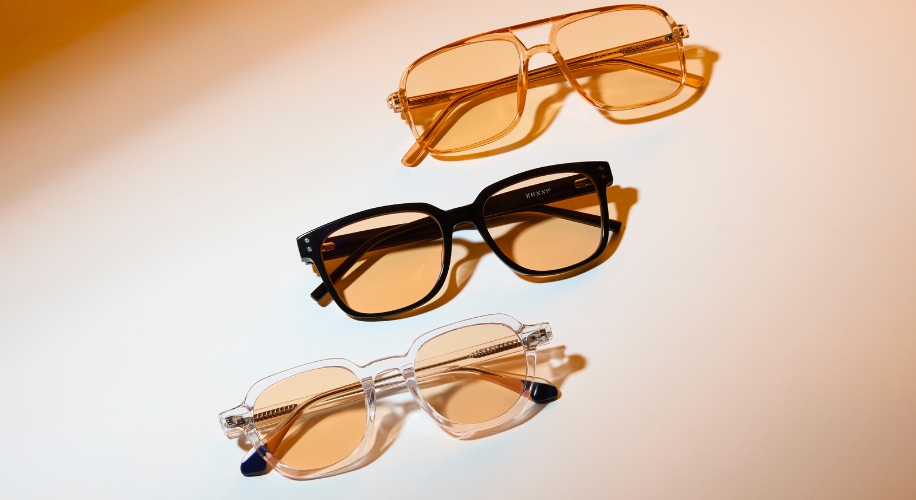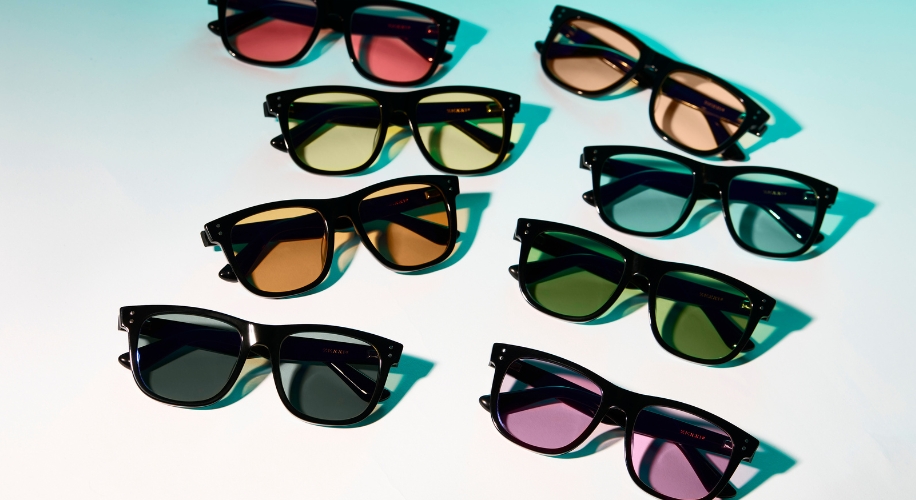The Impact of Blue Light and How to Filter It Effectively

Understanding the effects of blue light on our well-being is an essential part of maintaining eye health in the digital age. Blue light, which is part of the visible light spectrum, is emitted by the sun, but also by digital screens and artificial lighting.
Understanding Blue Light
Before we delve into filtering methods, let’s explore why blue light has become a topic of interest. Blue light:
- Has a shorter wavelength, which means it is high-energy.
- Is everywhere – not just in sunlight, but also in LED lighting and digital screen displays.
- Can affect our sleep by suppressing the production of melatonin, the hormone responsible for regulating sleep-wake cycles.
- May contribute to digital eye strain, resulting in symptoms like tired, dry, or itchy eyes, and difficulty focusing.
While blue light is not all bad and is in fact necessary during daylight hours for alertness, too much exposure, especially before bedtime, can disrupt our natural rhythms. This is where filtering blue light becomes crucial.
Filtering Blue Light Effectively

There are several ways to reduce blue light exposure, especially during evening hours. Here are some effective methods:
Screen Time Management
Minimizing screen time, particularly 2-3 hours before bed, can dramatically reduce blue light exposure. However, we recognize that this is not always practical, so additional steps can be taken.
Using Blue Light Filters
Many digital devices now come with built-in blue light filters that can be activated through the settings. Additionally, there are blue light blocking glasses specifically designed to filter out the blue light spectrum from reaching our eyes. These glasses can be particularly beneficial for those who spend long hours in front of a computer or other digital screens.
Adjusting Your Environment
Adjusting the lighting in your space can also help. Use dim red lights for night lights, as red light has the least power to shift circadian rhythm and suppress melatonin. Ensure your screens are not brighter than necessary, and consider using apps or settings that adjust your display to the time of day – warmer at night and brighter during the day.
Choosing the Right Blue Light Solution

When it comes to blue light filtering options, not all solutions are created equal. It’s important to find an option that suits your lifestyle and screen habits. Here are a few considerations:
- If you wear prescription glasses, consider adding a blue light filter to your lenses. This is a convenient way to ensure you’re always protected.
- For those who do not require prescription lenses, over-the-counter blue light glasses are available and can be worn while using digital devices.
- Ensure the blue light filtering solution you choose does not distort color significantly, especially if color accuracy is important for your work or hobbies.
- Look for glasses that are comfortable, fit well, and complement your style. A perfect fit is key to ensuring that you wear them consistently.
At Zenni Optical, we offer a variety of affordable lens options, including lenses with blue light filters. Our goal is to provide you with high-quality, budget-friendly eyewear that not only looks good but also protects your eyes.
Remember, while technology continues to advance and screens become an even more ubiquitous part of our lives, taking proactive steps to filter blue light is essential. With the right tools and habits, you can protect your eyes and improve your sleep, all while staying connected in our digital world.




 Canada
Canada